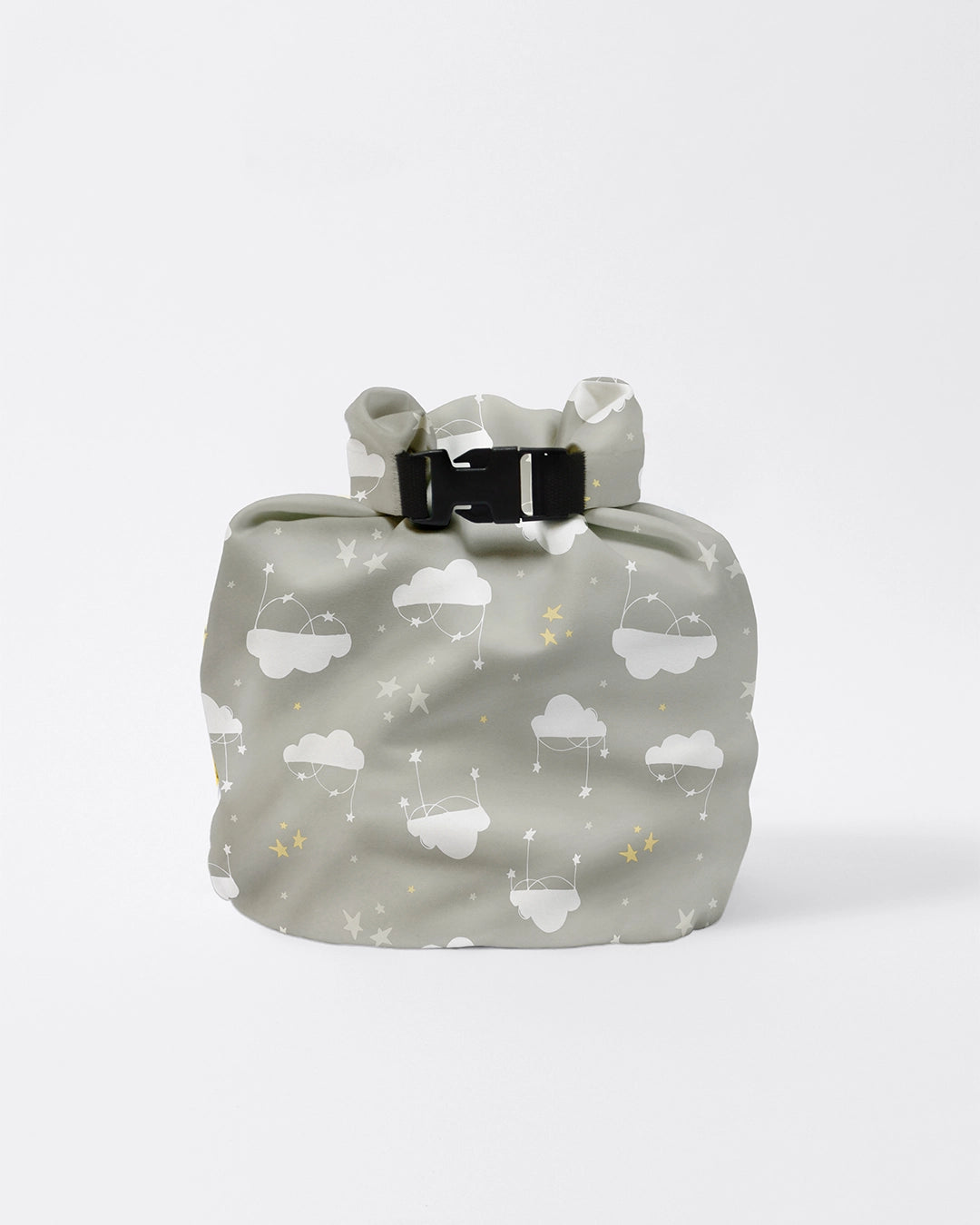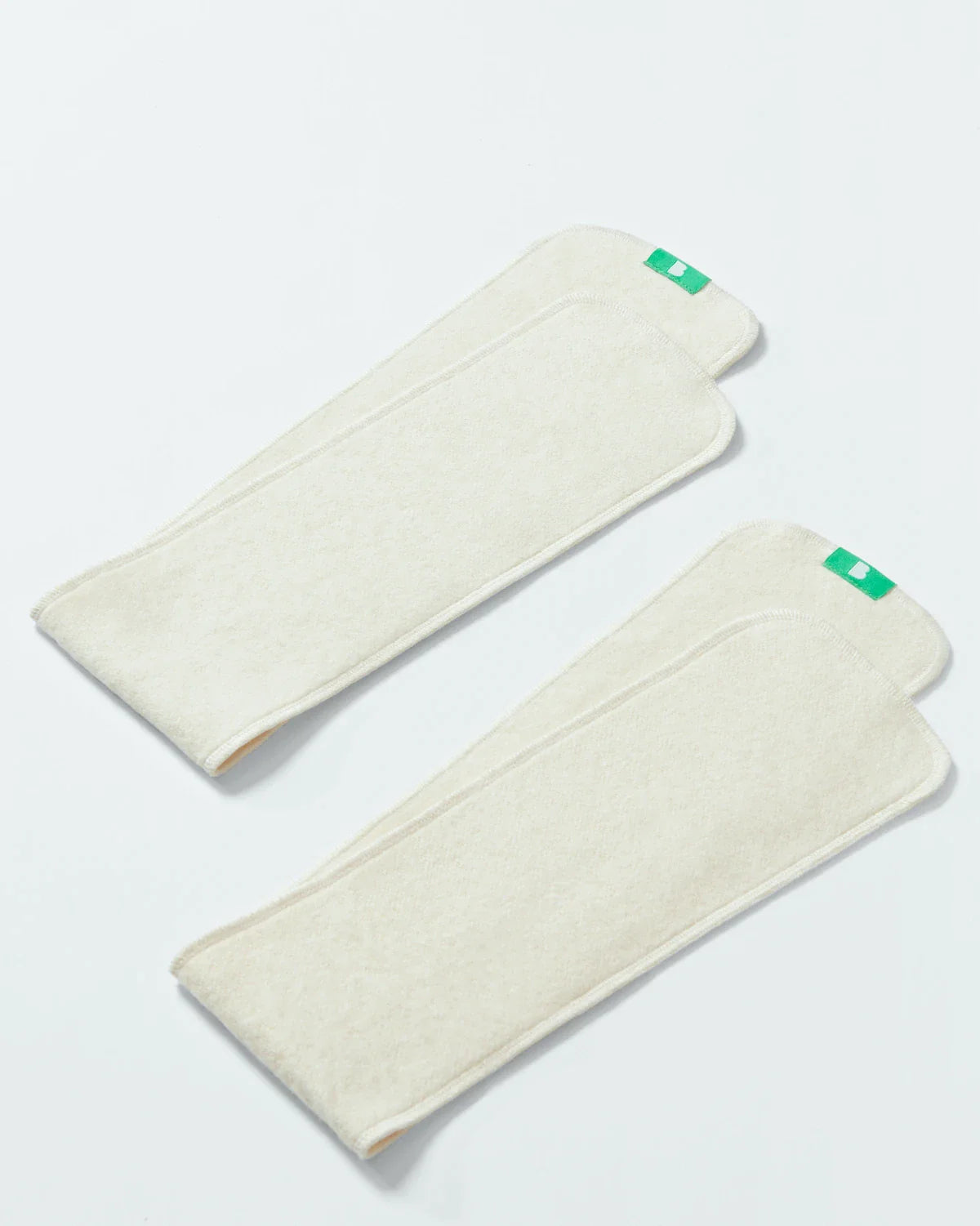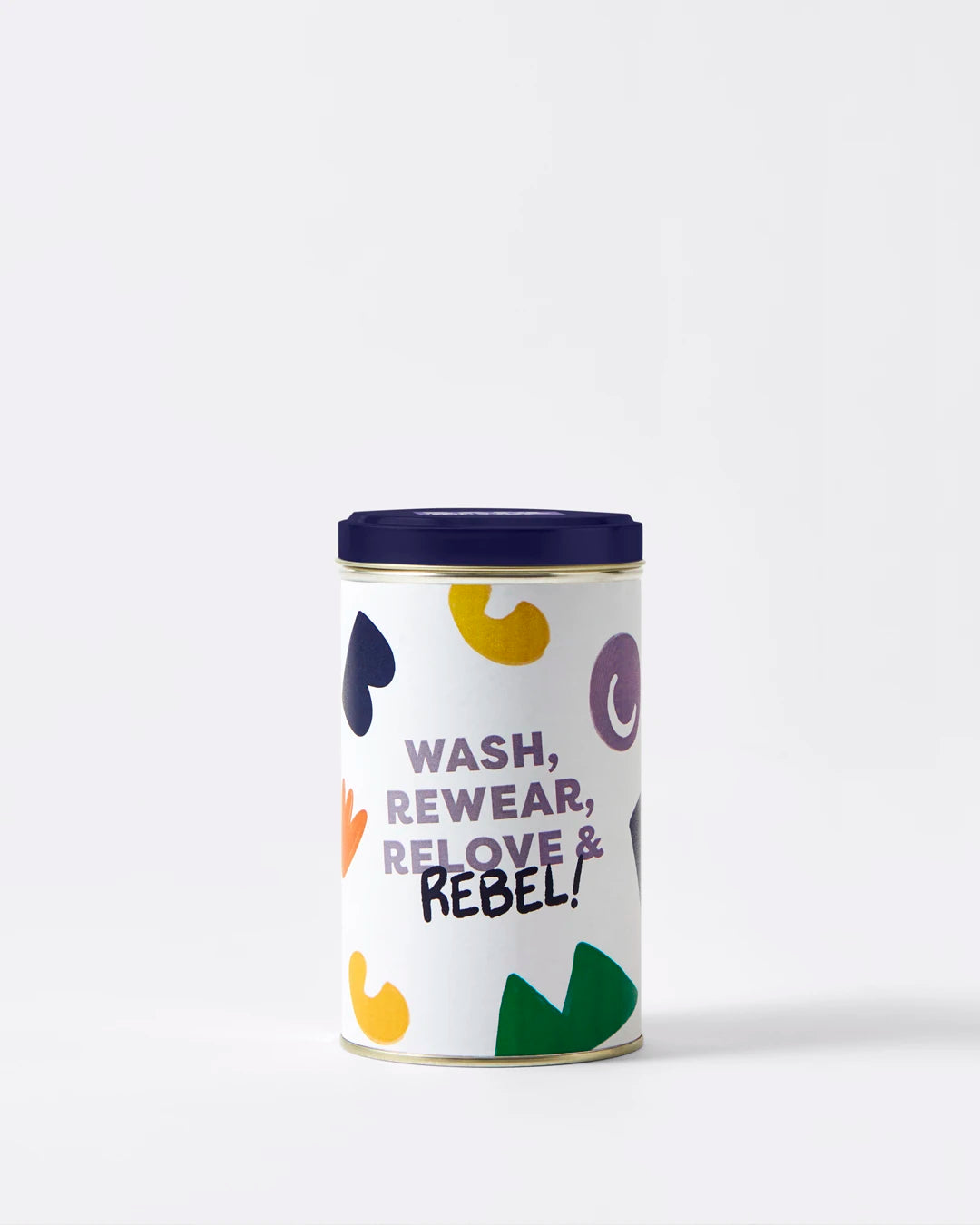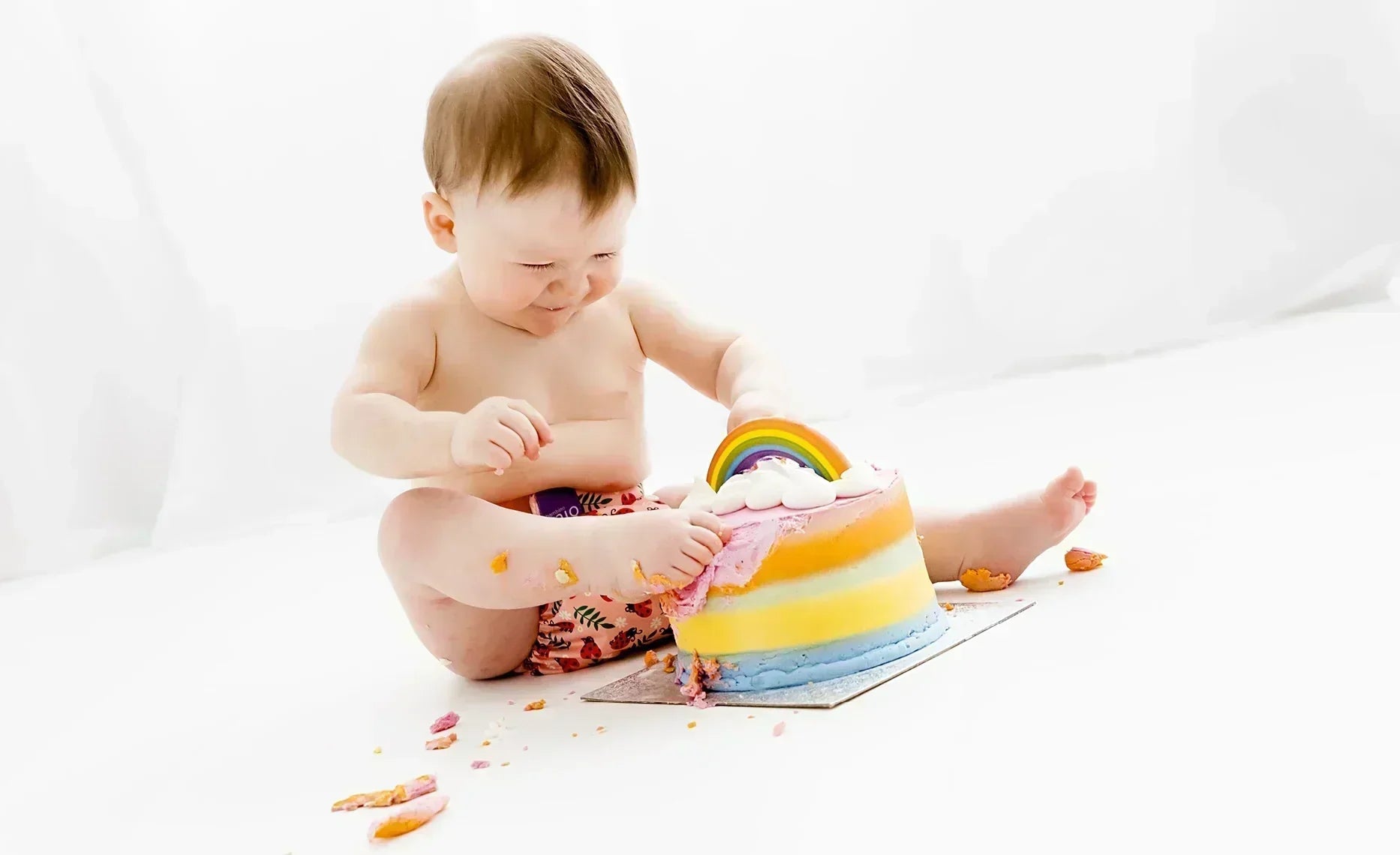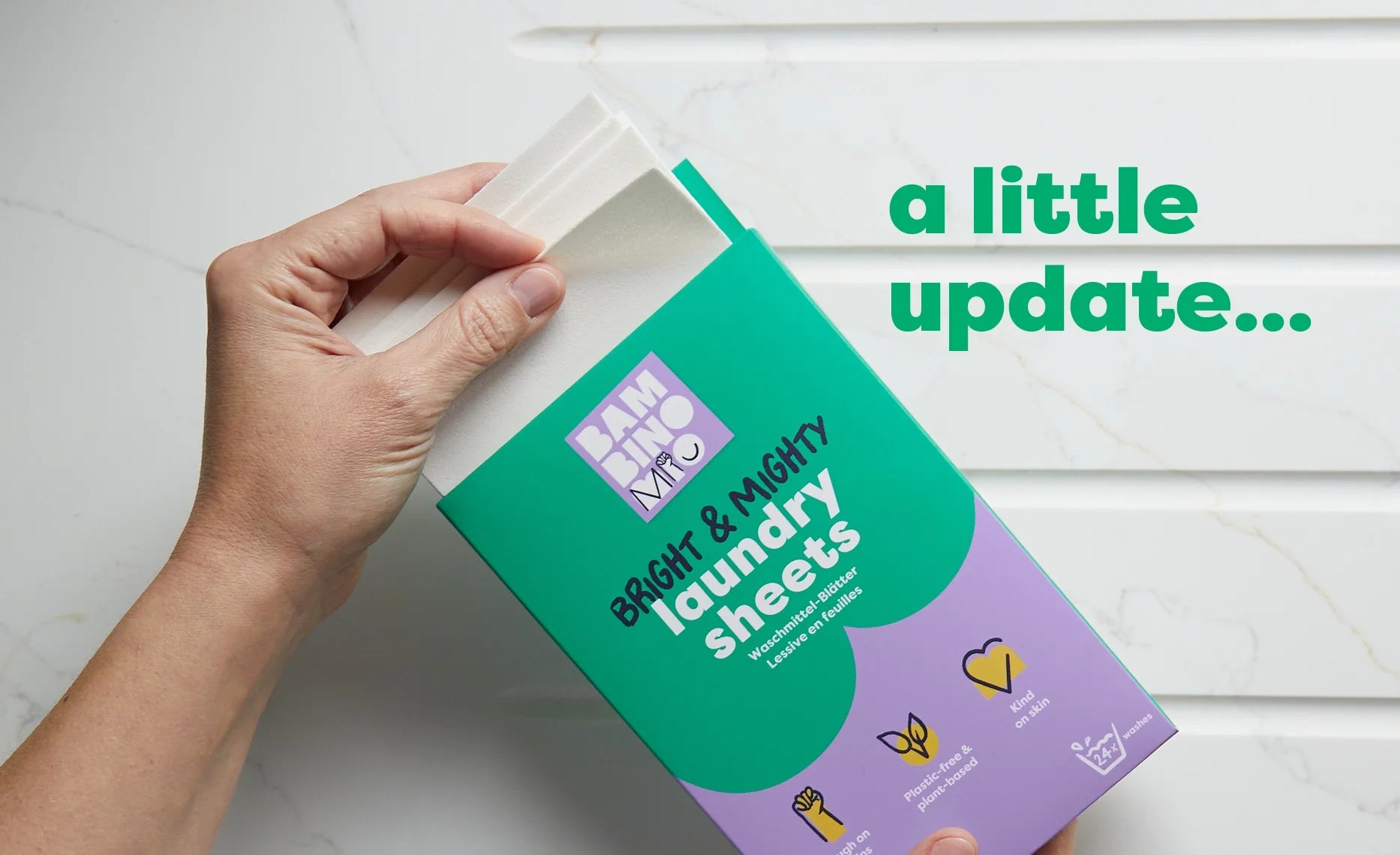When Do Babies Start Teething?
Share Options
- Bambino Mio
- 12 / 09 / 2023
Inside this Article:
Your baby’s teething schedule won’t be exactly the same as their little chums’, but it’ll follow roughly the same pattern, with them getting their first tooth sometime before their first birthday.
Read on to find out more about what age babies start teething and how to spot baby teething symptoms, as well as how to help your child through the process of cutting their teeth.
What age do babies start teething?
On average, babies cut their first tooth at the age of around six months. Some babies are born with one or more teeth, while others get their first tooth at 12 months or so, but most start to get teeth at the age of five, six or seven months.
How to spot symptoms of teething in babies
While some baby teeth might erupt with the minimum of discomfort, some might cause a bit of pain on their way through your baby’s gums.
One of the most common signs of teething in babies is general discomfort with no obvious reason. Your baby isn’t hungry, wet or tired, but just seems unhappy or uncomfortable.
If your baby is of teething age, you should look out for:
- Sore gums, because your baby’s gums, when teething, may become red and sore as the teeth start to push their way to the surface
- A slightly raised temperature, the so-called “teething fever”, which is usually lower than 38C but enough to be noticeable
- One flushed-red cheek, usually on the same side as the erupting tooth
- More dribbling or salivating than usual
- A rash on the same side of the face as the erupting tooth, caused by the extra dribbling
- Your baby rubbing or pulling at their ear
- Your baby chewing on their fingers, clothes or toys more than usual
- General fretting or clinginess
- Poor sleep, with early wakings, is another common teething baby symptom
How can you help your teething baby?
There are several ways to help your baby through the teething process (1), including:
- Offering your baby teething rings, which give them something to chew and gnaw on to relieve the discomfort of teething
- Giving your baby chilled teething rings as the coolness can soothe hot and irritated gums
- Crunchy foods, such as breadsticks and chilled melon, can also help to relieve the discomfort of teething but you should make sure that these foods don’t contain added sugar
- There’s no firm evidence that teething gels are effective, but many parents find them useful for short-term relief
- If your baby is very distressed by a tooth coming through then a painkiller such as ibuprofen or paracetamol (2) might help, but try non-medical solutions first
Are diarrhoea and a high fever signs a baby is teething?
Many people think that diarrhoea and a “true” fever (above 38C) are symptoms of teething, but there’s no evidence to suggest or support this.
Thankfully, for most babies, teething happens in stages rather than happening all at once, so you’ll all get a break in between bouts of fussiness and discomfort.
Once the first tooth appears, it’s important to start cleaning your baby’s tooth (or teeth) with a soft toothbrush to make sure they stay clean and that you’re fostering good dental hygiene habits.
Citations and References
- National Health Service (NHS). ‘Teething. Tips for Helping Your Teething Baby.’ 2022. Web. www.nhs.uk/conditions/baby/babys-development/teething/tips-for-helping-your-teething-baby
- National Health Service (NHS). ‘Health. Medicines for Babies and Children.’ 2021. Web. www.nhs.uk/conditions/baby/health/medicines-for-babies-and-children






















